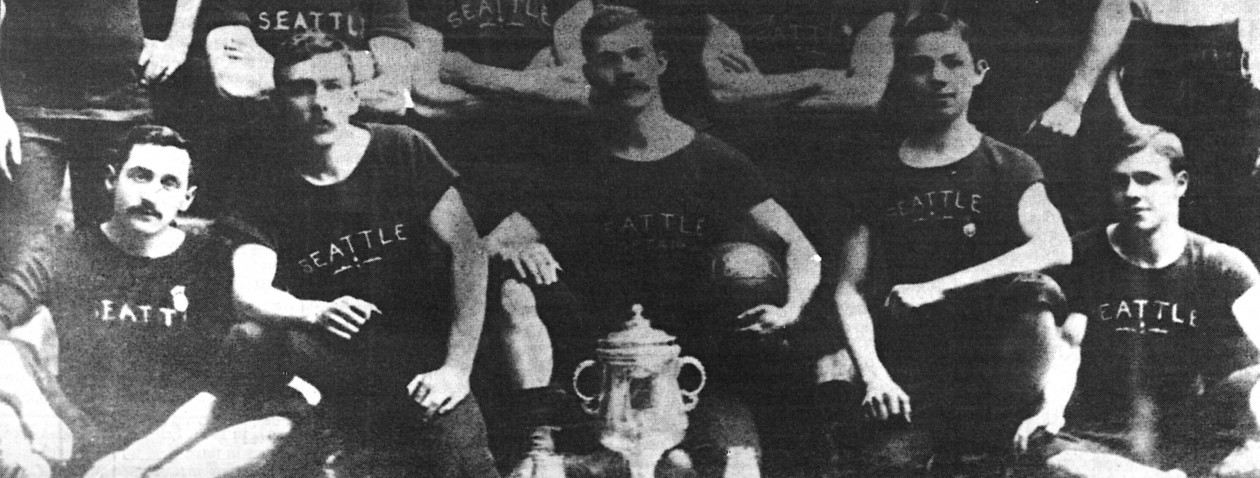Seeking a Silver Lining
Losses teach more lessons than victories, but it was difficult to know where to begin digesting what happened that day in Balboa Park.
For Mike Jones, it had been the perfect storm of adverse conditions. USF was unquestionably the stronger team and a deserving winner. But Washington had played strong Canadian programs such as Victoria and Simon Fraser and proved competitive. Earlier that season, the University of British Columbia had beaten the Dons, 3-1, prompting Jones to believe that on a given day, the Huskies might have earned a result.
“Looking at the two teams, it was probably a 3- or 4-nothing difference with us playing our best,” argues Jones. “Back then, other than the ethnic teams playing Sunday, it was all so new up here in the Northwest. When you got into games with college programs that had a lot of international players, it was hard to get much of the ball. I couldn’t see us scoring against (USF), but I think we could’ve held our own.”
 As word of the shocking score circulated around the Seattle soccer community, Jones and Joe Zohn could not help but feel ashamed.
As word of the shocking score circulated around the Seattle soccer community, Jones and Joe Zohn could not help but feel ashamed.
“I was embarrassed and humiliated by the outcome,” say Zohn. “I didn’t feel it was anywhere representative of who we were. We weren’t that bad. We weren’t horrible.
“We belonged there, and we had competed well,” he adds. “I thought they’d get us 4- or 5-0. From then on, whatever team I was on, we made sure we had a back-up keeper. You can’t win without a keeper.”
Fearing a Permanent Stain
There was no shortage of legitimate explanations, from playing an overtime game the night before, to losing their only goalkeeper, to traveling on short notice to play one of the nation’s foremost programs on its home field. Yet even if people took the time to listen, it might come across as just plain excuses.
However the greatest fear was that Washington’s woeful outcome might set back Northwest collegiate soccer for years to come.
 “Was it better that we went, or would we have been better off not to have gone?’ We talked about it for awhile, over a few beers at the pub,” admits Jones. “We were afraid the NCAA wouldn’t look at us up here again.”
“Was it better that we went, or would we have been better off not to have gone?’ We talked about it for awhile, over a few beers at the pub,” admits Jones. “We were afraid the NCAA wouldn’t look at us up here again.”
With each successive season, Mike Ryan’s UW program grew stronger. Players with greater experience, athleticism and technical ability joined the team. Meanwhile, neighboring programs at Seattle U. and Seattle Pacific made similar strides. The Falcons earned the next NCAA bid, the West Regional in 1971.
Redemption At last
In 1972, when the next true opportunity came about, the Huskies were ready to make a statement. Harry Keough’s mighty St. Louis University was NCAA royalty, having won six national championships in eight years. Keough brought his Billikens to Seattle early that season.
 Ryan told reporters beforehand that his squad was now exponentially better, that now he had 11 skilled players rather than just three or four as in the past. Washington held St. Louis to a scoreless draw; the Billikens would go on to win another title and the Huskies, by virtue of that result and 12 wins, returned to the NCAA tournament both in ’72 and ‘73.
Ryan told reporters beforehand that his squad was now exponentially better, that now he had 11 skilled players rather than just three or four as in the past. Washington held St. Louis to a scoreless draw; the Billikens would go on to win another title and the Huskies, by virtue of that result and 12 wins, returned to the NCAA tournament both in ’72 and ‘73.
By 1976, Ryan’s final season, the Huskies beat USF–which would go on to win the NCAA crown–for the first time. Little by little, they gained ground on the powers. In 1976 they beat USF for the first time en route to the Dons’ third of five national championships.
 For those who had absorbed that beating at Balboa Park eight years earlier, it was no doubt a moment to savor. For those in future generations, this retrospective is a small lesson that the struggle to become competitive, to become a championship contender, requires years and years, plus continuous reinvestment.
For those who had absorbed that beating at Balboa Park eight years earlier, it was no doubt a moment to savor. For those in future generations, this retrospective is a small lesson that the struggle to become competitive, to become a championship contender, requires years and years, plus continuous reinvestment.
The Huskies and Seattle U. are now reaching the postseason with regularity; Seattle Pacific is a long-established power at the Division II level. None of that happens overnight, and the shoulders today’s players stand upon have long since exited the stage. The path to greatness has to begin somewhere, and sometimes it starts with a shellacking like 16-nil.
“We’ll always be able to say we were the first U-Dub team to get invited and play in the tournament,” concedes Jones. “But just the same, I’d rather talk about the St. Louis game.”
